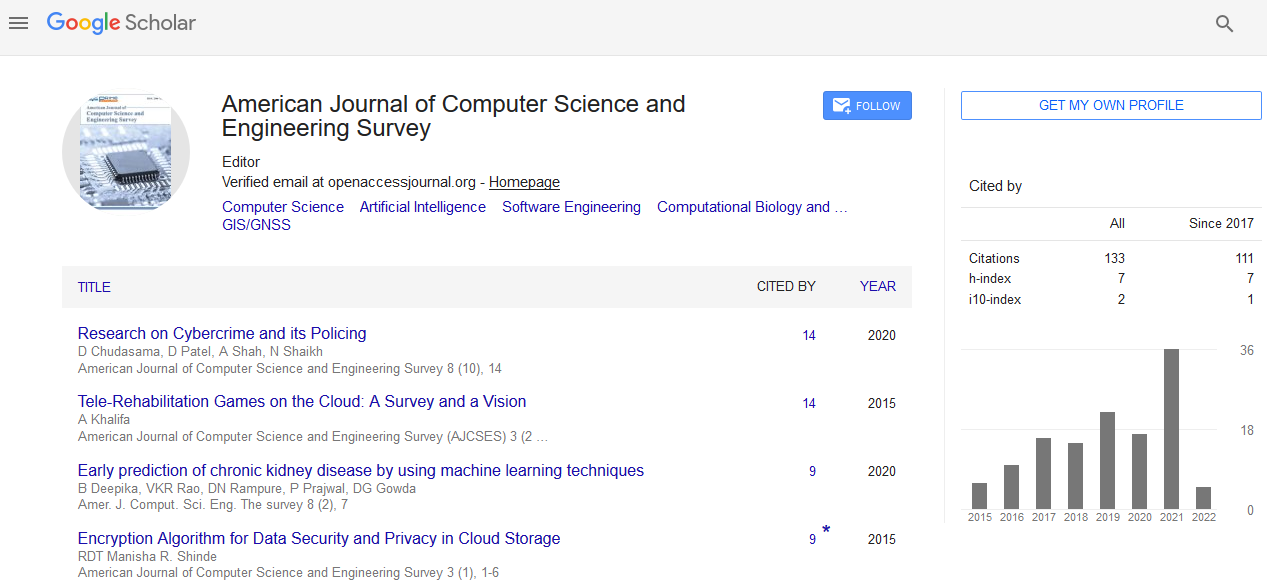Commentary - (2024) Volume 12, Issue 3
Coding: The Heart of Modern Technology and Innovation
Jing Li*
Department Computer Science, Fudan University, China
*Correspondence:
Jing Li,
Department Computer Science, Fudan University,
China,
Email:
Received: 02-Sep-2024, Manuscript No. IPACSES-24-21239;
Editor assigned: 04-Sep-2024, Pre QC No. IPACSES-24-21239 (PQ);
Reviewed: 18-Sep-2024, QC No. IPACSES-24-21239;
Revised: 23-Sep-2024, Manuscript No. IPACSES-24-21239 (R);
Published:
30-Sep-2024, DOI: 10.36846/2349-7238.24.12.25
Description
Coding, or programming, is the process of writing instructions
for computers to perform specific tasks. It is the fundamental
skill behind software development, web applications, and many
aspects of modern technology. From creating sophisticated
algorithms to solving complex problems, coding has become an
essential tool in various fields, driving innovation and enabling
advancements. This review explores the significance of coding,
its evolution, key programming languages, and the impact
it has on technology and society. Coding is at the core of all
digital technology. It transforms human ideas into functional
software, powering everything from mobile apps and websites
to artificial intelligence and data analytics. Without coding,
the devices and services we rely on daily would not exist. At
its heart, coding is about solving problems. Programmers write
code to create algorithms that tackle complex challenges,
automate tasks, and improve efficiency. This problem-solving
aspect drives innovation, leading to new technologies,
improved processes, and creative solutions. The demand
for coding skills is rapidly growing across various industries.
Software developers, data scientists, and IT professionals are
highly sought after, making coding a valuable skill for career
advancement. Learning to code opens doors to a wide range of
job opportunities and professional growth. Coding empowers
individuals to bring their ideas to life. It allows for creative
expression through the development of software, games, and
applications. With coding skills, people can create tools that
solve real-world problems, build platforms for others, and
contribute to technological progress. The origins of coding
date back to the early 19th century with Ada Lovelace and
Charles Babbage’s work on the Analytical Engine. However,
modern programming languages began to emerge in the mid-
20th century. Languages like fortran and COBOL were among
the first, designed for scientific and business applications
respectively. The introduction of object-oriented programming
(OOP) with languages like C++ and Java marked a significant
evolution in coding. OOP concepts, such as encapsulation and
inheritance, made it easier to manage and reuse code, leading
to more modular and scalable software development. The rise
of the internet brought about the need for web development
languages. Scripting languages like JavaScript, PHP, and
Python became popular for building dynamic websites and
web applications. These languages facilitated the creation of
interactive and user-friendly web experiences. Today’s coding
landscape includes a variety of paradigms and languages.
Functional programming languages like Haskell and Scala,
as well as newer languages like Rust and Go, offer different
approaches to coding, each with its own strengths and use
cases. Additionally, advancements in AI and machine learning
have introduced specialized languages and frameworks like
TensorFlow and PyTorch. As coding drives technological
advancements, it also raises ethical considerations. Issues
such as data privacy, security, and the potential for misuse
of technology must be addressed to ensure responsible and
ethical use of coding skills. Coding is the backbone of modern
technology, driving innovation and shaping the digital world. Its
impact spans from software development and web applications
to data science and automation. As coding continues to evolve,
it remains a crucial skill that empowers individuals, transforms
industries, and enhances our daily lives. While challenges
exist, the opportunities and potential of coding make it an
exciting and essential field in the ever-evolving landscape of
technology. Whether you’re a beginner or an experienced
programmer, embracing coding offers a gateway to creativity,
problem-solving, and endless possibilities.
Acknowledgement
None.
Conflict Of Interest
None.
Citation: Li J (2024) Coding: The Heart of Modern Technology and Innovation. Am J Comp Science. 12:25.
Copyright: © 2024 Li J. This is an open-access article distributed under the terms of the Creative Commons Attribution License, which permits unrestricted use, distribution and reproduction in any medium, provided the original author and source are credited.

